Jahreskonferenz des Europäischen Verbindungsnetzwerkes der Bürgerbeauftragten in Strasbourg - Megatrend Digitalisierung – Die Sicht der Bürgerinnen und Bürger bei der Umsetzung in der Verwaltung berücksichtigen
Date of article: 09/05/2022
Daily News of: 11/05/2022
Country:  Germany
- Thuringia
Germany
- Thuringia
Author:
Article language: de
m 27. und 28.04.2022 nahm Dr. Kurt Herzberg auf Einladung der Europäischen Bürgerbeauftragten, Emily O’Reilly, an der jährlichen Konferenz des Europäischen Netzwerkes der Bürgerbeauftragten (ENO) in Strasbourg teil. Die Europäische Bürgerbeauftragte ist Vorsitzende des Verbindungsnetzes der Bürgerbeauftragten in Europa und koordiniert als solche deren Zusammenarbeit. Über 150 nationale und regionale Bürgerbeauftragte, Vertreter von Petitionsausschüssen, Mitglieder des Europäischen Parlaments, EU-Beamte sowie weitere Organisationen aus ganz Europa nutzten die Möglichkeit, erstmals wieder nach 2019 auch zu einem persönlichen Austausch zusammen zu kommen. Die Konferenz fand in den Räumen des Europaparlaments statt und war auch online zugänglich.
Die Zusammenkunft widmete sich aus aktuellem Anlass zunächst der Situation in der Ukraine sowie der ukrainischen Flüchtlinge in den Aufnahmeländern. Damit der Prozess der Aufnahme dieser Menschen weitgehend vereinfacht werden konnte, hatten sich die EU-Ministerinnen und -Minister im März 2022 darauf geeinigt, einen Mechanismus für vorübergehenden Schutz einzurichten. Der vorübergehende Schutz ist ein Notfallmechanismus, der im Fall eines Massenzustroms von Menschen angewandt werden kann, um Vertriebenen, die nicht in ihr Herkunftsland zurückkehren können, sofort und kollektiv (d. h. ohne vorherige Prüfung von Einzelanträgen) Schutz zu gewähren. Auf diese Weise soll der Druck auf die nationalen Asylsysteme verringert und den Vertriebenen ermöglicht werden, überall in der EU harmonisierte Rechte in Anspruch zu nehmen.
Sehr persönlich und eindrucksvoll berichtete zunächst die ukrainische Bürgerbeauftragte, Ludmilla Denisova, über die Situation der Menschen in der Ukraine. Daneben informierte die EU-Kommissarin für Inneres, Ylva Johansson als auch einzelne Bürgerbeauftragte zur konkreten Situation der Flüchtlinge in den jeweiligen Aufnahmeländern.
Hauptthema der Konferenz war jedoch der Megatrend der Digitalisierung in den öffentlichen Verwaltungen. Es wurden die allgemeinen Herausforderungen erörtert, die sich aus dieser Entwicklung, insbesondere mit Blick auf die Rechte von Bürgerinnen und Bürger, ergeben. So hat die Corona Pandemie in den letzten beiden Jahren die digitale Entwicklung zwar enorm beschleunigt, aber gleichzeitig wurde deutlich, dass dieser Prozess auch zu einem teilweisen Ausschluss von Bürgerinnen und Bürgern geführt hat. So waren während der Pandemie viele Behörden zeitweise nur noch digital erreichbar. Gleichzeitig gab es aber zahlreiche Menschen, die den digitalen Zugang gar nicht nutzen konnten.
Auch wenn die Digitalisierung von Verwaltungsabläufen in den einzelnen europäischen Ländern eine unterschiedliche Dynamik aufweist, zeigten sich in der Diskussion der Bürgerbeauftragten Gemeinsamkeiten: Der digitale Zugang bereitet vor allem älteren Menschen, sozial Schwachen aber auch Menschen mit Behinderungen besondere Schwierigkeiten. Auch Bewohner schwach entwickelter – ländlicher – Regionen fehlt oft der Zugang. Ursache ist entweder das fehlende Wissen im Umgang mit der Technik oder die Nichtverfügbarkeit des Internets. Für viele Bedürftige sind eine Anschaffung der Technik und die wiederkehrenden Kosten nicht finanzierbar. So führt der Prozess der zunehmenden Digitalisierung nicht nur zu einer Entmaterialisierung, in der der Kontakt zur Verwaltung auf digitale Korrespondenz beschränkt bleibt, sondern birgt auch die Gefahr einer Entfremdung zwischen Bürger und Verwaltung. Denn wenn der digitale Zugang erschwert ist, die Möglichkeit eines direkten, persönlichen Kontakts aber nicht mehr besteht, bleibt der Bürger frustriert außen vor.
Es wurde auch die Frage diskutiert, ob der Bürger nicht ein Recht auf physischen Zugang zur Verwaltung hat. Anders ausgedrückt: Ist die Verwaltung nicht in der Pflicht, den Zugang zu ihr so zu gewährleisten, wie der Bürger in der Lage ist, diesen wahrzunehmen?
Die Bürgerbeauftragten diskutierten Beispiele aus der Praxis, die geeignet sein können, die Position der Bürger in diesem Wandlungsprozess zu stärken. Besonders betont wurde die Notwendigkeit, bei digitalen Verfahren dem Bürger auch immer die Möglichkeit einer physischen Kontaktaufnahme zur Verwaltung zu geben.
Herzberg zog folgendes Fazit: „Sicher bringt die Digitalisierung der Verwaltung viele Vorteile mit sich. Die Effektivierung der Verwaltungsabläufe und die zeit- und ortsunabhängige Nutzung der Verwaltungsdienste sind zentrale Vorteile. Dennoch müssen die Menschen, für die die Verwaltung da zu sein hat, bei dieser Entwicklung mitgenommen werden. Digitale Systeme müssen deshalb zuerst nutzerorientiert und nutzerfreundlich gedacht und ausgestaltet werden. Nur so kann sichergestellt werden, dass eine digitale Exklusion verhindert wird.“
Im Nachgang der Konferenz ist die Bildung von Arbeitsgruppen geplant, die die einzeln aufgeworfenen Problemkreise weiter bearbeiten sollen.
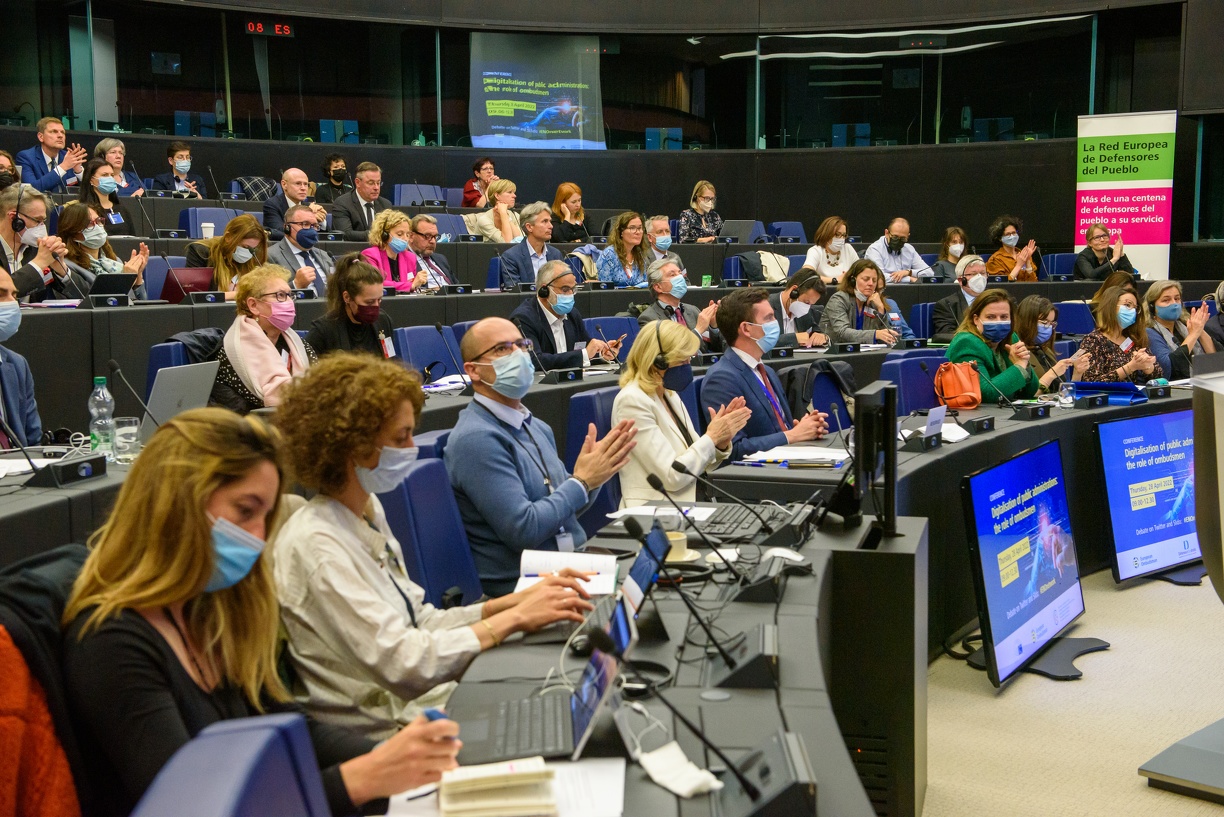
Foto: ENO
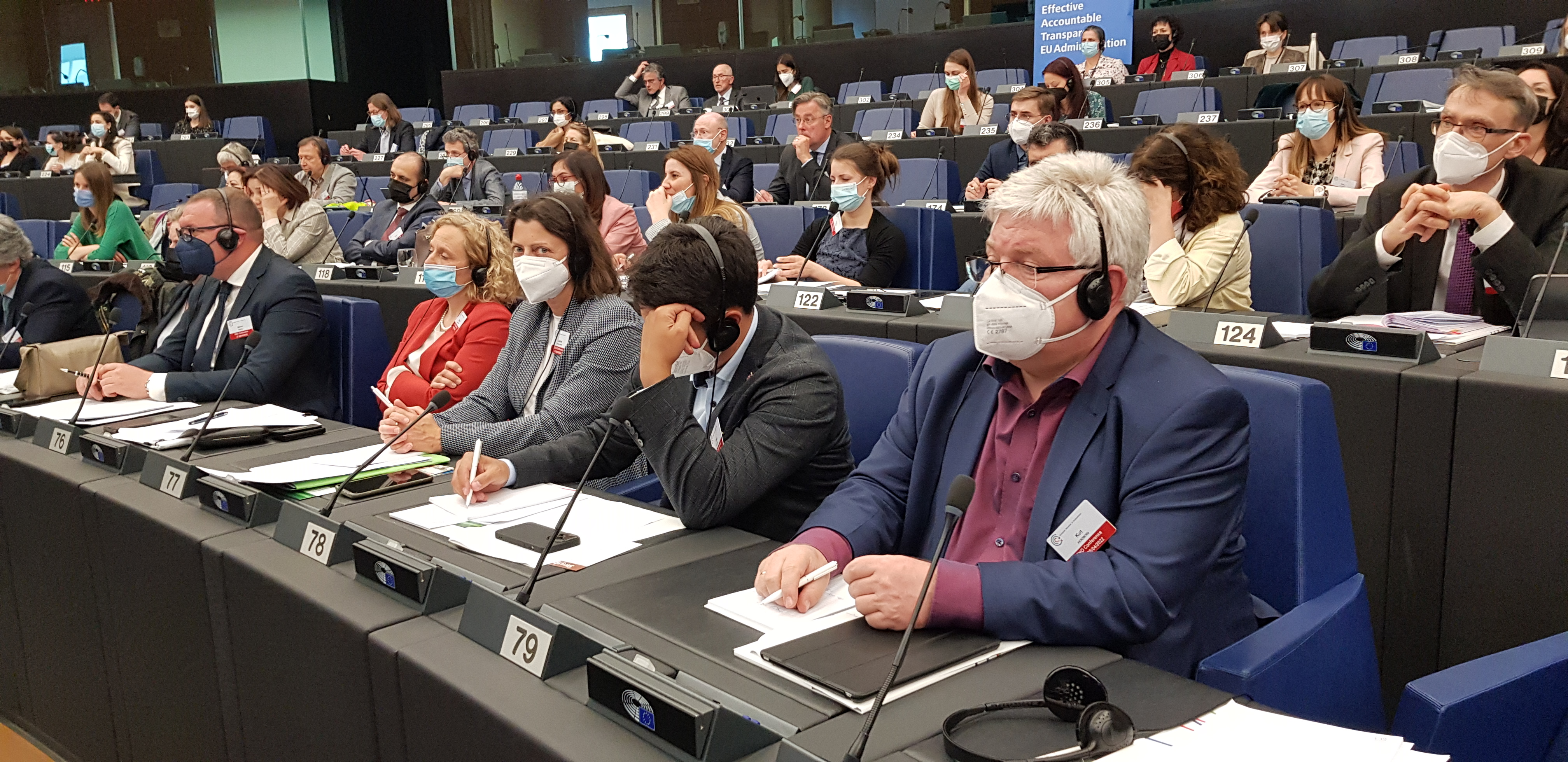
Foto: Thüringer Bürgerbeauftragter
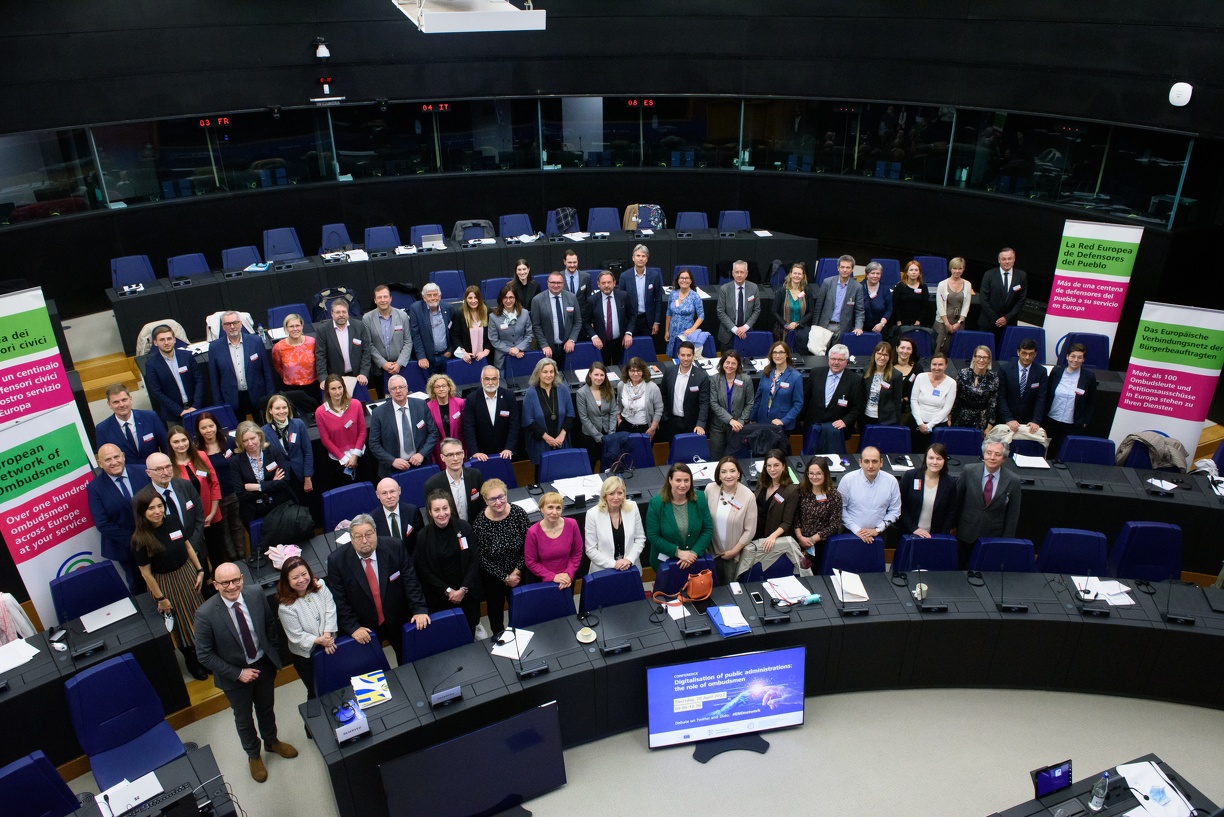
Foto: ENO
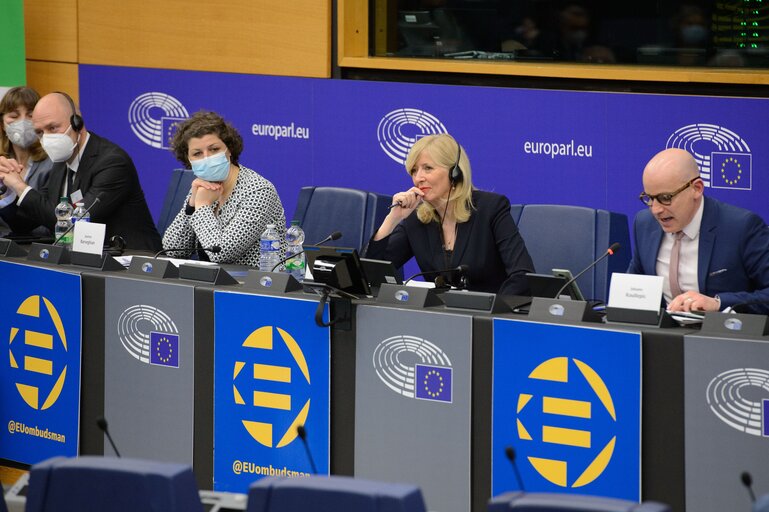
Foto: 2.v.r. EU-Bürgerbeauftragte Emily O'Reilly, ENO
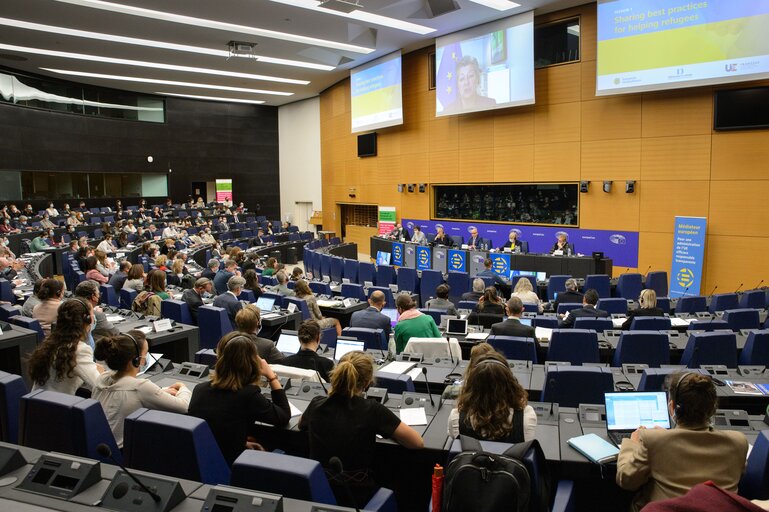
Foto: ENO



